Clinical Laboratory Sciences
Fast-track your career in the clinical medical arena with a B.S. in clinical laboratory sciences and a minor in biology from Georgian Court University.
Clinical Laboratory Sciences Program Highlights
Program
Clinical Laboratory Sciences B.S.
1–2 Years
Average time to complete
Delivery
On Campus
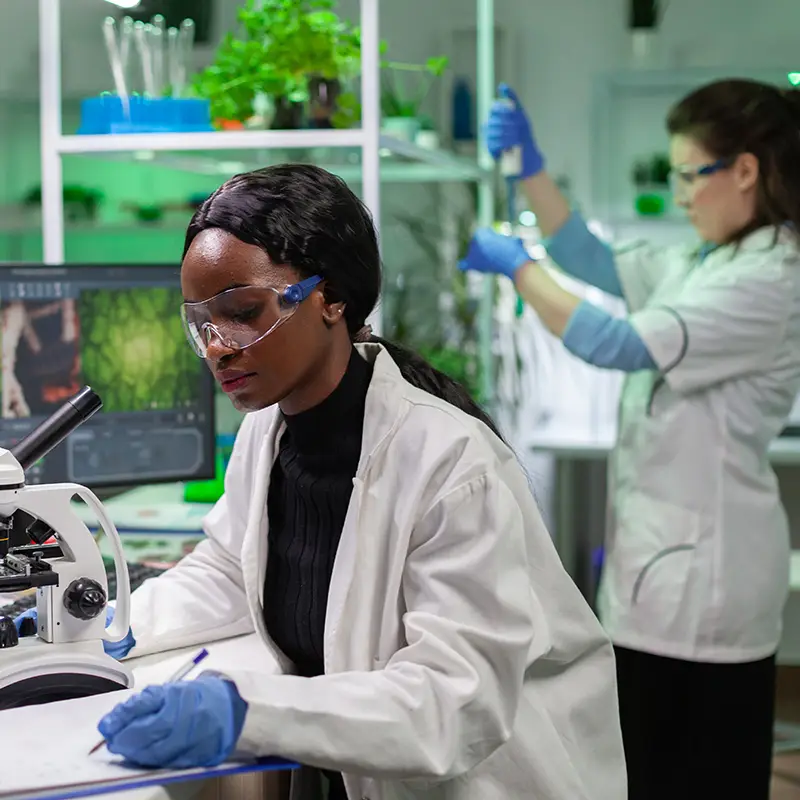
Jump-Start Your Clinical Medical Career at GCU
A joint degree program in partnership with the Rutgers School of Health Professions, GCU’s clinical laboratory sciences program guides you through the first steps of your journey to a career in the clinical medical arena. During your time at GCU, you’ll take science courses and minor in biology. Then, at the end of your junior year, you’ll apply to Rutgers-SHP to continue your learning experience.
Why you should pursue a Clinical Laboratory Sciences degree from GCU
Gain Lab Experience
By majoring in clinical laboratory science at GCU, you’ll find plenty of opportunities for hands-on learning experiences in state-of-the-art labs that prepare you for the experiences you’ll encounter when you become employed after graduation.
Institutional Financial Aid
At Georgian Court University, 98% of students receive institutional financial aid. As a result, Georgian Court University has been cited by U.S. News & World Report as a top performer for social mobility. Our affordability helps you make an investment in yourself.
Mercy Core Values
We are devoted to our core values of respect, integrity, justice, compassion, and service, which are woven through each course and every aspect of our educational experience. At GCU, students, faculty, and staff see themselves as something bigger than themselves, recognizing their ability and responsibility to change the world as individuals and as a community.
Why GCU?
Georgian Court University is synonymous with possibility. Our education—which revolves around a broad liberal arts education, plenty of hands-on learning opportunities, and a tight-knit community—expands what’s possible in your life. All of this combined with more than $17 million in financial aid annually helps GCU to be recognized as a vehicle for social mobility.
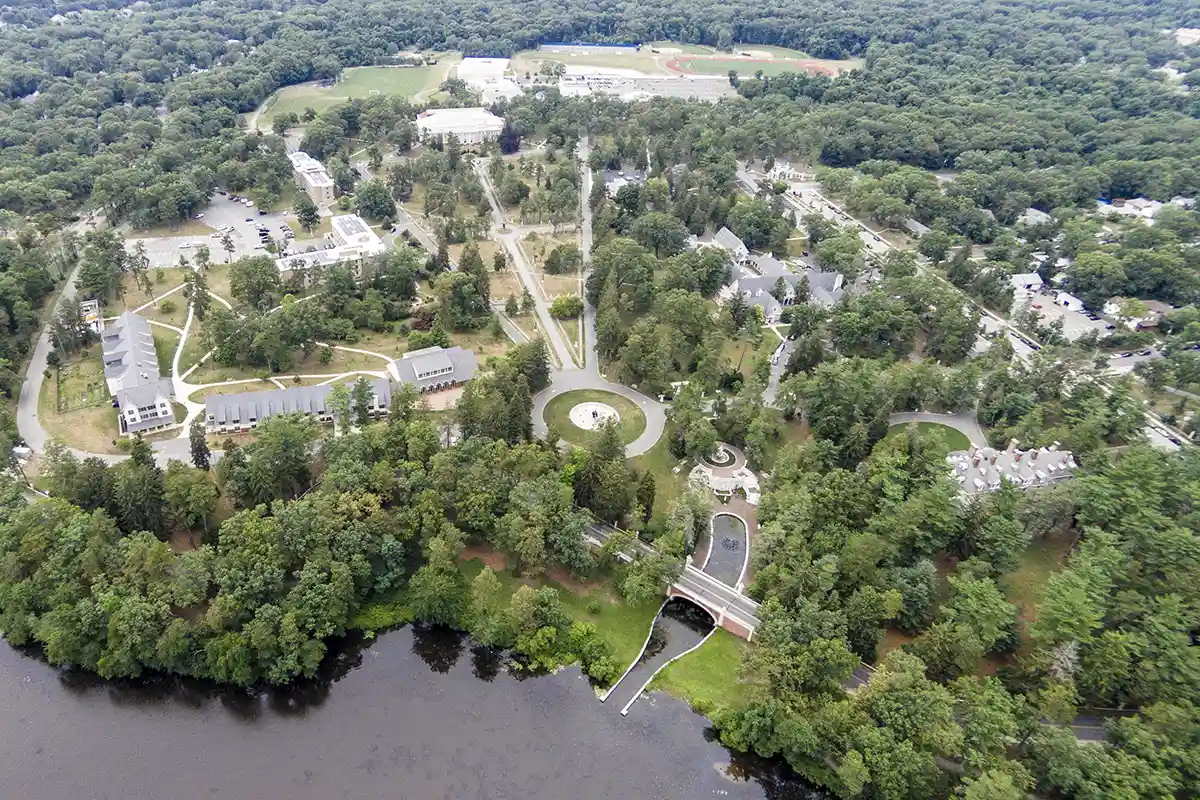
Clinical Laboratory Sciences Program Information
To earn a clinical laboratory sciences degree from Georgian Court University, you must complete at least 120 credits, including General Education requirements. Explore the degree requirements below, along with information on programs related to clinical laboratory sciences.
Curriculum
The B.S. in Clinical Laboratory Sciences (medical laboratory science specialization) is a joint-degree program with the Rutgers University School of Health Professions in Newark and Scotch Plains. At GCU, students take a specific set of science courses leading to a minor in biology, and complete the general education (physical education, humanities and social sciences) requirements at GCU. This typically adds up to a total of 85 or more GCU credits. In the fall of the junior year (consult with advisor and Rutgers University website for deadline date), the student applies to the Rutgers University’s School of Health Professions. If accepted, the student spends 12 to 15 months taking the 45 credits of specialized courses in the medical laboratory science program at Rutgers University. At the conclusion of the period of study at Rutgers University, the student earns a Bachelor of Science in Clinical Laboratory Sciences with a minor in biology, jointly awarded by GCU and Rutgers University. Students pay GCU tuition and fees while enrolled at GCU, and Rutgers University tuition and fees while enrolled at Rutgers University.
GCU does not guarantee acceptance into any Rutgers University program. Rutgers University generally expects applicants to have earned no grade lower than a C in the required science courses and to have a minimum GPA of at least 2.85 (requirements subject to change). Meeting or exceeding the minimum GPA does not guarantee acceptance into the Rutgers University program. Some Rutgers University courses are taught online.
To earn this degree, students must successfully complete at least 120 credits, including General Education requirements and the major requirements below.
Clinical Laboratory Sciences Major with a Minor in Biology for Rutgers University Medical Laboratory Science (Medical Technology) Program
Requirements
| Code | Title | Credits |
|---|---|---|
| Biology | ||
| BI121 | Cellular Organiz., Energetics & Function | 4.0 |
| BI204 | Genetics & Evolution | 4.0 |
| BI213 | Human Anatomy & Physiology I | 4.0 |
| BI214 | Human Anatomy & Physiology II | 4.0 |
| BI219 | Microbiology | 4.0 |
| Select one of the following: | 3.0-4.0 | |
BI427 | Immunology (4 credits) | |
BI428 | Fundamentals of Immunology (3 credits) | |
| BI437 | Biochemistry I | 4.0 |
| Chemistry | ||
| CH113 | General Chemistry I | 4.0 |
| CH114 | General Chemistry II | 4.0 |
| CH223 | Organic Chemistry I | 4.0 |
| CH224 | Organic Chemistry II | 4.0 |
| Mathematics | ||
| Select one of the following: | 3.0-4.0 | |
MA110 | Precalculus | |
MA115 | Calculus I | |
MA116 | Calculus II | |
| Statistics | ||
| Select one of the following: | 3.0 | |
BI203 | Experimental Design & Statistics | |
MA103 | Introduction to Statistical Thinking | |
SO201 | Social and Crime Statistics | |
| Total Credits | 49.0-51.0 | |
Recommended electives for students planning to seek an advanced degree in science:
| Code | Title | Credits |
|---|---|---|
| MA115 | Calculus I | 4.0 |
| MA116 | Calculus II | 4.0 |
| PH121 | University Physics I | 4.0 |
| PH122 | University Physics II | 4.0 |
For more information on program requirements, consult the Undergraduate Catalog.
Faculty
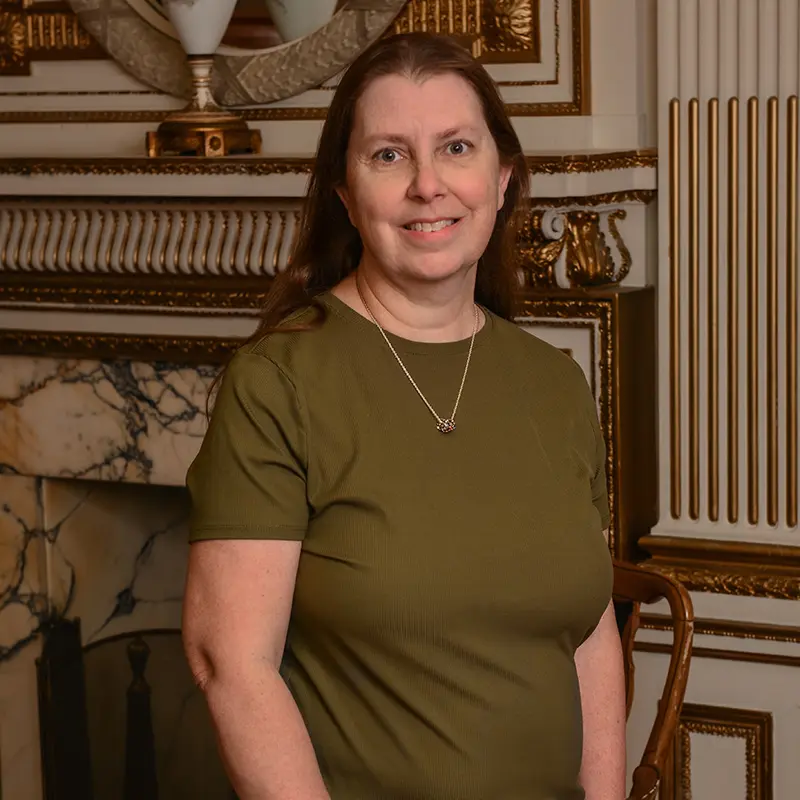
Carolyn A. Bergman, Ph.D.
Associate Professor & Chair of Biology
School of Arts, Sciences, and Education
Jeffries Hall (203)
cbergman@georgian.edu
732-987-2372
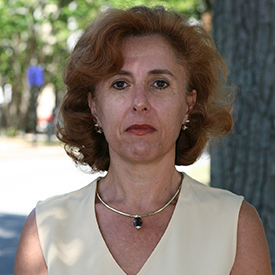
Brunella Bowditch, Ph.D.
Associate Professor of Biology
School of Arts, Sciences, and Education
Jeffries Hall (202)
bbowditch@georgian.edu
732-987-2377

Michael F. Gross, Ph.D.
Professor of Biology
School of Arts, Sciences, and Education
Jeffries Hall (112)
mgross@georgian.edu
732-987-2373
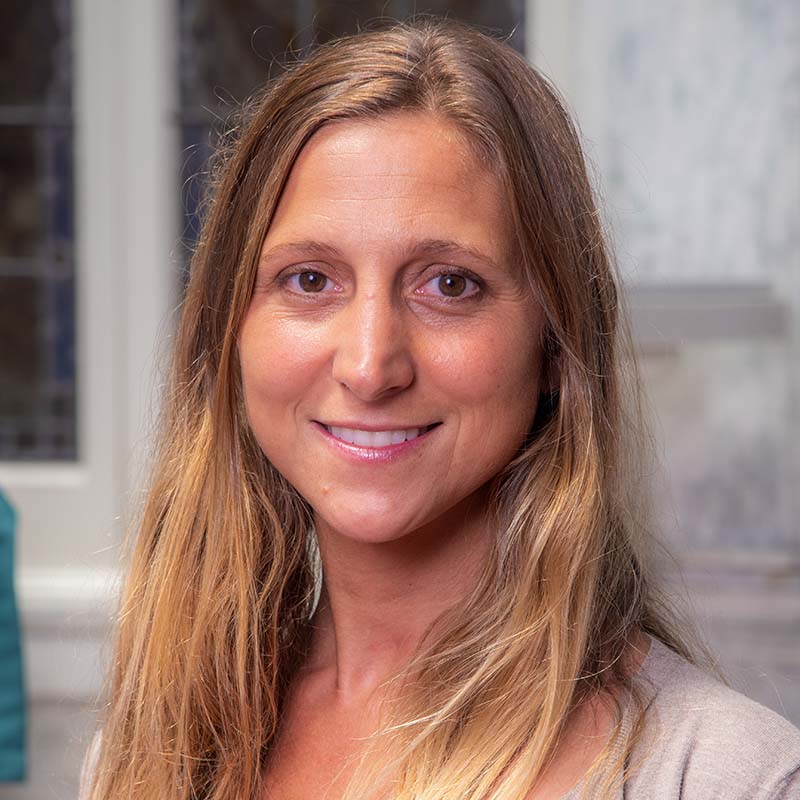
Jessica A. Lisa, Ph.D.
Assistant Professor of Biology
School of Arts, Sciences, and Education
Jeffries Hall
jlisa@georgian.edu
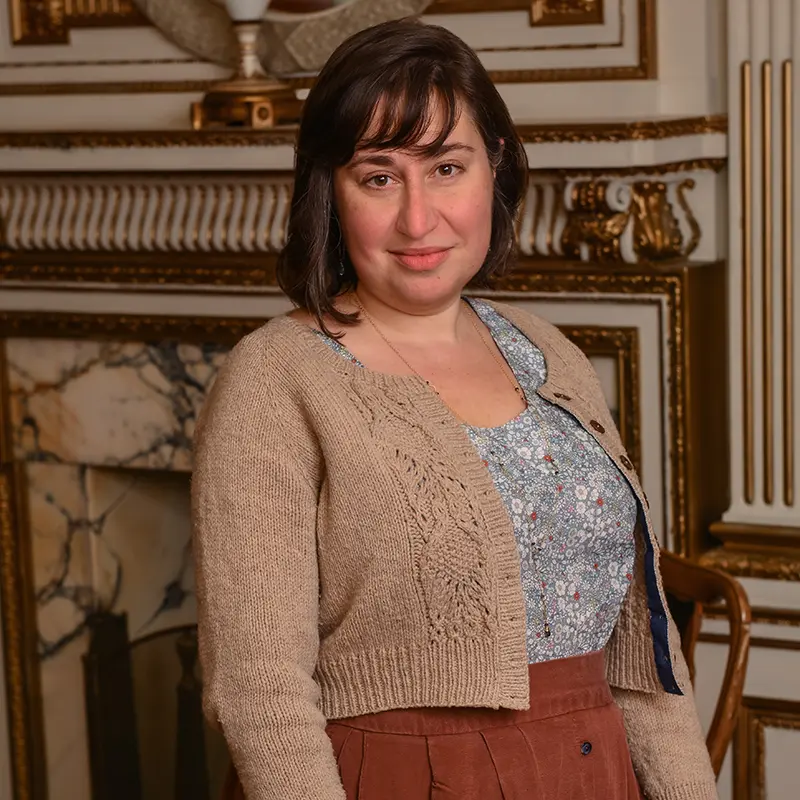
Jean Parry, Ph.D.
Associate Professor
School of Arts, Sciences, and Education
Jeffries Hall (136)
jparry@georgian.edu
732-987-2370
Related Programs
If you’re interested in our Clinical Laboratory Sciences program in the School of Arts, Sciences, and Education, here are other programs at GCU you might be interested in exploring:
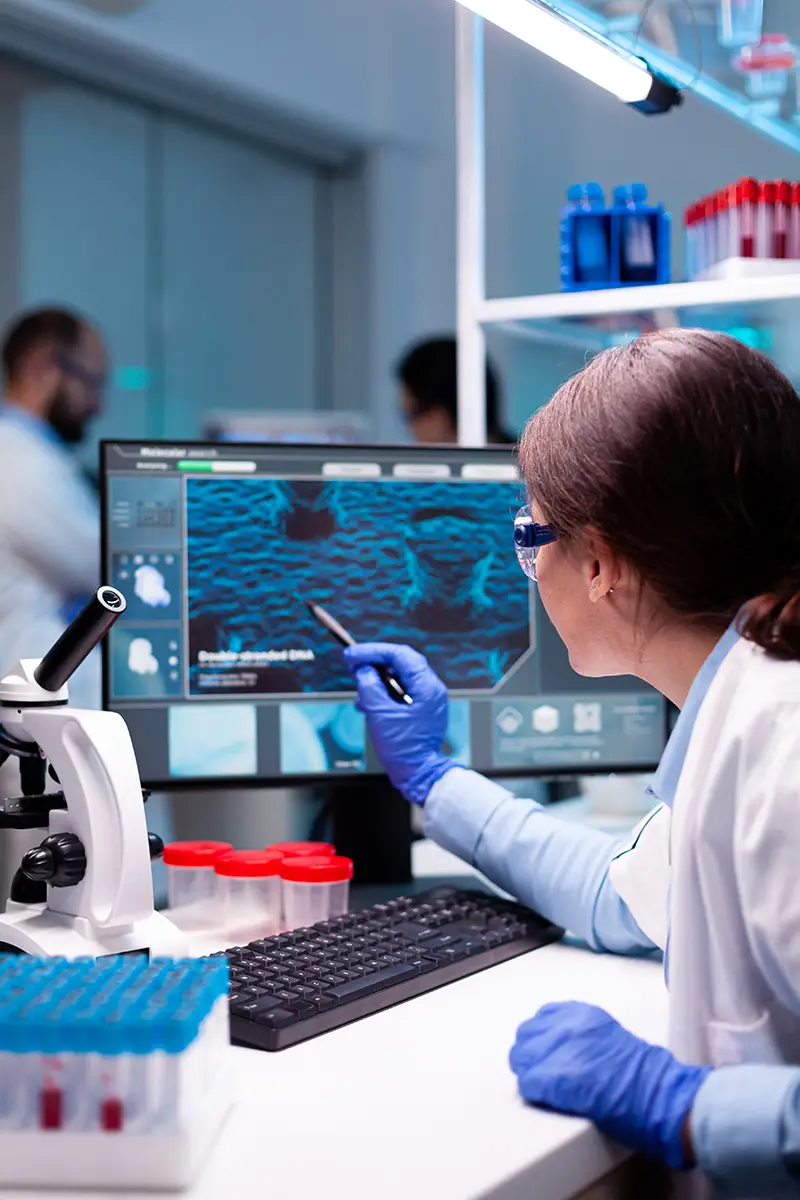
Finishing Your Degree at the Rutgers School of Health Related Professions
Students completing the clinical laboratory sciences degree are enrolled at GCU for the first three years of the program. Then, students must apply to Rutgers School of Health Related Professions to complete the remaining credits. At GCU, you’ll take a specific set of science courses leading to a minor in biology and complete GCU’s General Education requirements. This typically adds up to a total of 85 or more GCU credits. In the fall of the junior year, you’ll apply to Rutgers University’s School of Health Professions. If accepted, you’ll then spend 12 to 15 months taking the 45 credits of specialized courses in the medical laboratory science program at Rutgers University. At the conclusion of the period of study at Rutgers University, you will earn a Bachelor of Science in clinical laboratory sciences with a minor in biology, jointly awarded by GCU and Rutgers University. Students pay GCU tuition and fees while enrolled at GCU and Rutgers University tuition and fees while enrolled at Rutgers University.
GCU does not guarantee acceptance into any Rutgers University program. Rutgers University generally expects applicants to have earned no grade lower than a C in the required science courses and to have a minimum GPA of at least 2.85 (requirements subject to change). Meeting or exceeding the minimum GPA does not guarantee acceptance into the Rutgers University program. Some Rutgers University courses are taught online.
Next Steps to Apply

Financial Aid
Learn about GCU’s commitment to affordability and how to receive financial aid.

Tuition and Fees
Discover up-front information about what it costs to attend Georgian Court University.

Admissions
Applying to Georgian Court is easy, and our admissions staff is always ready to answer any questions you may have.
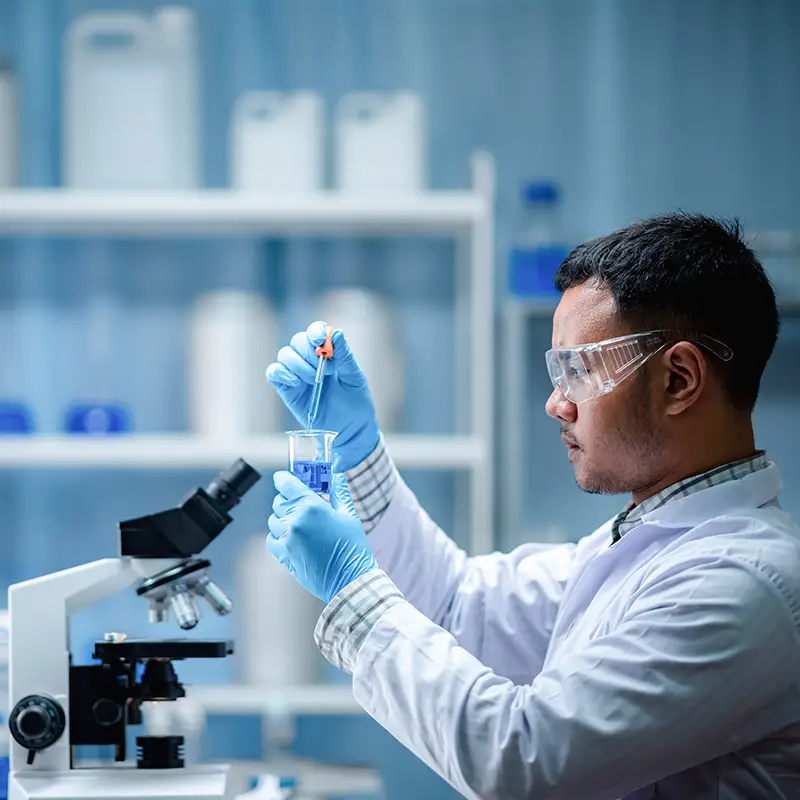
What You Can Do With a GCU Clinical Laboratory Sciences Degree
Students who have graduated with a clinical laboratory sciences degree from Georgian Court University have gone on to enter a wide range of careers.
After graduation, you’ll also have flexibility in where you work, with possible careers such as a laboratory technician, research scientist, forensic scientist, cyrotechnologist, and so much more. GCU’s Career Services can help you plan for your career by providing you the tools you need to search for jobs, prepare for interviews, and develop a professional network.
Explore More of GCU
Academics
Small class sizes, personalized education, and programs in traditional and emerging fields are what make academics at GCU stand apart from the rest.
Student Success
Get study tips, registration assistance, and other academic support from GCU’s Office of Student Success.
About GCU
We’re a forward-thinking institution dedicated to your growth and success. Discover how you can get the GCU advantage.
Have questions?
Contact us
Georgian Court University
900 Lakewood Avenue
Lakewood, NJ 08701
Campus Map
Contact Information
Office of Undergraduate Admissions
Phone: 732-987-2700
E-mail: admissions@georgian.edu
Office Hours
- Monday-Friday: 8:30 a.m. – 4:30 p.m.
- Saturday: *By appointment only
- Sunday: Closed
*Check tour schedule for specific dates/times.
Request More Info
Imagine your future at
Georgian Court
LEARN HOW TO APPLY
We make applying easy. Get all the details on what you need to start your journey at GCU.
Visit Us
Seeing is believing. Take a look at our campus by driving, walking, or exploring our virtual tour.
GET MORE INFORMATION
Reach out to us and learn more about all GCU has to offer you.
